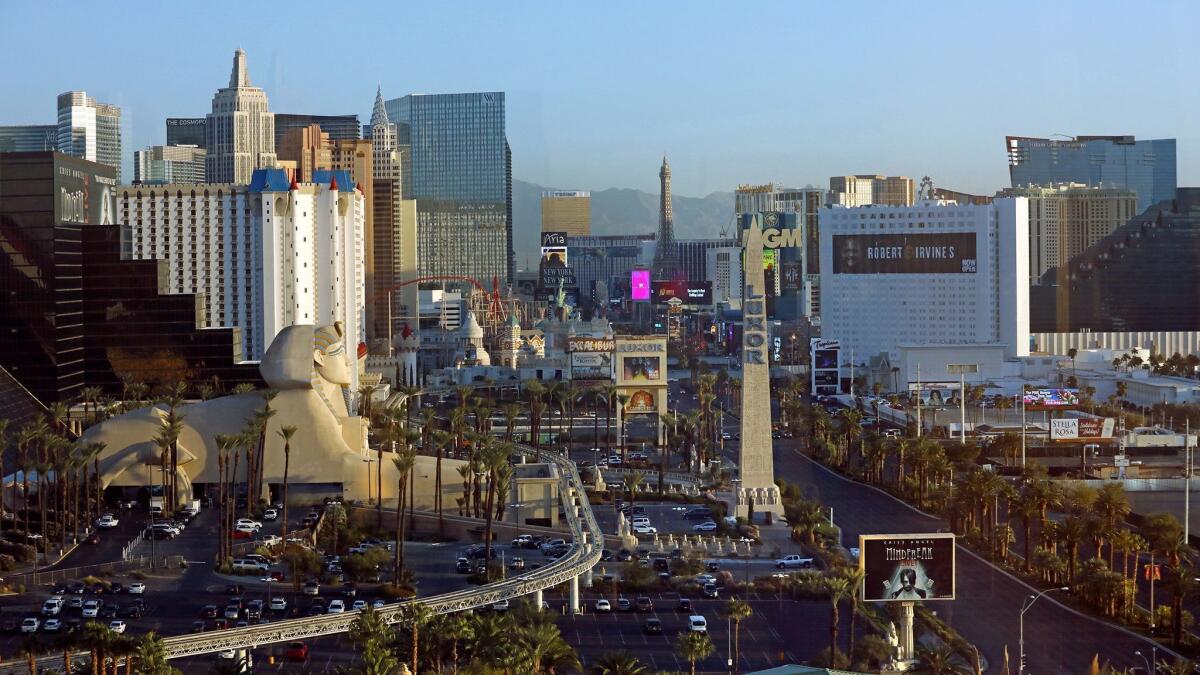Hotels are expected to reap a record $2.93 billion in fees

- Share via
Hotels will bring in a record $2.93 billion this year in extra charges beyond the basic room rate for things that many travelers still expect to get free.
That total, which represents an 8.5% increase from 2017, comes from Bjorn Hanson, an adjunct professor at New York University School of Professional Studies and a hospitality expert who has been tracking hotel fees for years. He predicts such charges will continue to rise in 2019 to help hotel operators keep up with higher payroll and real estate costs.
“Fees and surcharges are highly profitable,” Hanson said in an annual assessment of hotel industry fees. As much as 90% of many charges go straight to the bottom line, he said.
In the airline industry, which began imposing new charges as the recession deepened in 2008, fees have generated a great deal of passenger anger, although charges for things such as checking luggage or changing reservations have helped air carriers overcome rising jet fuel and payroll costs.
The hospitality industry discovered the magic of fees around 1997 when hotels needed to compensate for higher energy costs, Hanson said.
To generate new revenue, hotels and airlines both prefer to add fees or increase existing ones rather than raise prices so as not to scare off customers who primarily consider base air fares and overnight rates when planning a trip.
Among the relatively new fees imposed at resort hotels in the past two years are charges for early check-in, which is most common in resort areas such as Las Vegas, Hanson said.
Resort fees — ranging from $20 to $40 — have also become more common in urban hotels that aren’t generally considered resorts. In the past, resort fees have been associated with gyms or pools, but now resort fees are more often charged to pay for free bottled water, breakfast and newspapers, he said.
More hotels are likely to adopt them because customers aren’t complaining, he said.
“Anecdotal reports are that these charges at urban hotels are receiving limited guest resistance,” Hanson said.
About 6% of this year’s increase in hotel fees comes from new and higher charges. About 2.5% of the increase is because hotels are more full this year, and higher occupancy rates mean more people are paying fees, he said.
To read more about the travel and tourism industries, follow @hugomartin on Twitter.
More to Read
Inside the business of entertainment
The Wide Shot brings you news, analysis and insights on everything from streaming wars to production — and what it all means for the future.
You may occasionally receive promotional content from the Los Angeles Times.











